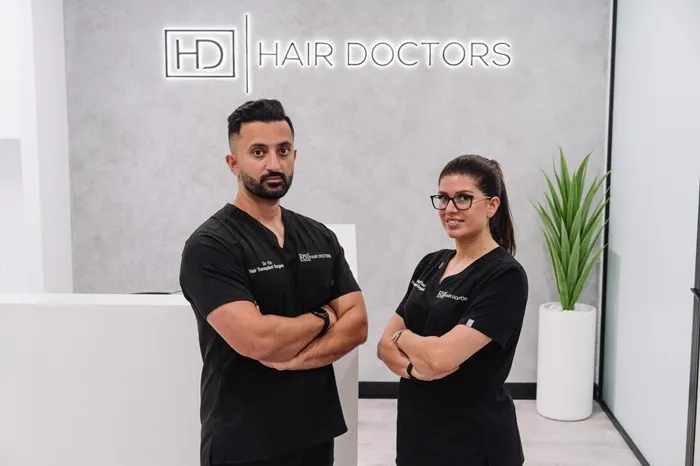Hair loss and scalp issues are common concerns that affect millions of people worldwide. Whether it’s due to genetics, aging, stress, or medical conditions, hair problems can have a significant impact on self-esteem and quality of life. This is where a hair specialist doctor comes in.
In this article, we will explore what a hair specialist doctor is, their role, the conditions they treat, the treatments they offer, and how to choose the right specialist for your needs. By the end of this article, you will have a clear understanding of what a hair specialist doctor does and how they can help you achieve healthier, fuller hair.
What is a Hair Specialist Doctor?
A hair specialist doctor, also known as a trichologist or dermatologist specializing in hair and scalp disorders, is a medical professional who focuses on diagnosing, treating, and managing conditions related to the hair and scalp. These specialists have extensive training and expertise in understanding the complex structure of hair, the hair growth cycle, and the various factors that can affect hair health.
Types of Hair Specialist Doctors
There are different types of hair specialist doctors, each with their own area of expertise:
Dermatologists: Dermatologists are medical doctors who specialize in skin, hair, and nail conditions. They can diagnose and treat a wide range of hair and scalp disorders, including hair loss, scalp infections, and inflammatory conditions.
Trichologists: Trichologists are specialists who focus specifically on hair and scalp health. While not all trichologists are medical doctors, they have specialized training in trichology, the science of hair and scalp disorders.
Hair Transplant Surgeons: These are surgeons who specialize in performing hair transplant procedures. They have expertise in both surgical and non-surgical treatments for hair loss, including follicular unit transplantation (FUT) and follicular unit extraction (FUE).
The Role of a Hair Specialist Doctor
The primary role of a hair specialist doctor is to diagnose and treat hair and scalp conditions. Their responsibilities include:
Diagnosis: Hair specialist doctors use various diagnostic tools and techniques to identify the underlying cause of hair and scalp problems. This may include a physical examination, medical history review, blood tests, scalp biopsies, and trichoscopy (a non-invasive method of examining the scalp and hair).
Treatment: Once a diagnosis is made, the hair specialist doctor will develop a personalized treatment plan tailored to the patient’s specific needs. This may include medications, topical treatments, lifestyle changes, and surgical interventions.
Education: Hair specialist doctors educate patients about their condition, the factors contributing to their hair loss or scalp issues, and the available treatment options. They also provide guidance on proper hair care practices to maintain healthy hair and scalp.
Monitoring and Follow-Up: Hair specialist doctors monitor the progress of their patients and make adjustments to the treatment plan as needed. Regular follow-up appointments are essential to ensure the effectiveness of the treatment and address any concerns.
How to Choose the Right Hair Specialist Doctor
Choosing the right hair specialist doctor is crucial for achieving the best possible outcomes. Here are some factors to consider when selecting a hair specialist:
Qualifications and Credentials: Ensure that the hair specialist doctor is board-certified in dermatology or has specialized training in trichology. Check their credentials, certifications, and affiliations with professional organizations.
Experience: Look for a hair specialist doctor with extensive experience in diagnosing and treating hair and scalp conditions. Ask about their experience with specific conditions and treatments.
Reputation: Research the doctor’s reputation by reading patient reviews, testimonials, and before-and-after photos. A reputable doctor will have positive feedback from satisfied patients.
Consultation: Schedule a consultation to meet the doctor in person. Use this opportunity to ask questions, discuss your concerns, and evaluate the doctor’s communication style and approach to treatment.
Conclusion
A hair specialist doctor plays a vital role in diagnosing, treating, and managing hair and scalp conditions. Whether you’re experiencing hair loss, scalp infections, or other hair-related issues, a hair specialist doctor can provide the expertise and care needed to restore your hair health. By understanding the role of a hair specialist doctor, the conditions they treat, and the treatments they offer, you can make informed decisions about your hair care and achieve the best possible results.
If you’re struggling with hair or scalp issues, don’t hesitate to seek the help of a qualified hair specialist doctor. With the right diagnosis, treatment, and care, you can regain your confidence and enjoy healthier, fuller hair.
Related topics:
- 8 Best Hair Transplant Doctors in the USA
- 6 Best Hair Restoration Doctors in the USA
- 5 Best Hair Transplant Doctors in Southern California


